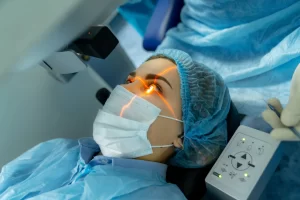Maintaining good oral health is essential for overall well-being. Dental problems can arise due to various factors such as poor oral hygiene, dietary habits, genetics, and lifestyle choices. Here, we delve into some of the most common dental issues people face and explore preventive measures to keep your smile healthy and bright.

- Tooth Decay (Cavities): Tooth decay, often caused by plaque buildup, occurs when bacteria in the mouth feed on sugars from food and produce acids that erode tooth enamel. This leads to the formation of cavities. To prevent tooth decay, it’s crucial to brush your teeth at least twice a day, floss daily, limit sugary and acidic foods, and visit your dentist regularly for cleanings and check-ups.
- Gum Disease (Gingivitis and Periodontitis): Gum disease is an inflammation of the gums caused by bacteria in plaque. Gingivitis is the early stage of gum disease, characterized by red, swollen gums that bleed easily. If left untreated, it can progress to periodontitis, which can cause tooth loss and other serious health complications. Preventive measures include proper oral hygiene, regular dental visits, and quitting smoking, as smoking is a significant risk factor for gum disease.
- Tooth Sensitivity: Tooth sensitivity occurs when the protective enamel on the teeth wears down, exposing the underlying dentin and nerve endings. Common triggers include hot or cold foods and beverages, acidic foods, and vigorous brushing. To reduce tooth sensitivity, use a soft-bristled toothbrush, avoid acidic foods and drinks, and consider using desensitizing toothpaste.
- Bad Breath (Halitosis): Bad breath can be embarrassing and may be caused by poor oral hygiene, certain foods, smoking, dry mouth, or underlying health conditions. To combat bad breath, brush and floss regularly, clean your tongue with a tongue scraper, stay hydrated, avoid tobacco products, and chew sugar-free gum or mints.
- Tooth Erosion: Tooth erosion occurs when the enamel wears away due to acids from food, beverages, or stomach acid. This can lead to tooth sensitivity, discoloration, and an increased risk of cavities. To prevent tooth erosion, limit your consumption of acidic foods and drinks, drink water after consuming acidic foods, and wait at least 30 minutes before brushing your teeth after consuming acidic foods or drinks.
- Oral Cancer: Oral cancer can affect the lips, tongue, cheeks, floor of the mouth, hard and soft palate, sinuses, and throat. Risk factors include tobacco use, excessive alcohol consumption, sun exposure to the lips, and certain strains of the human papillomavirus (HPV). Early detection is key to successful treatment, so be sure to visit your dentist regularly for oral cancer screenings.











